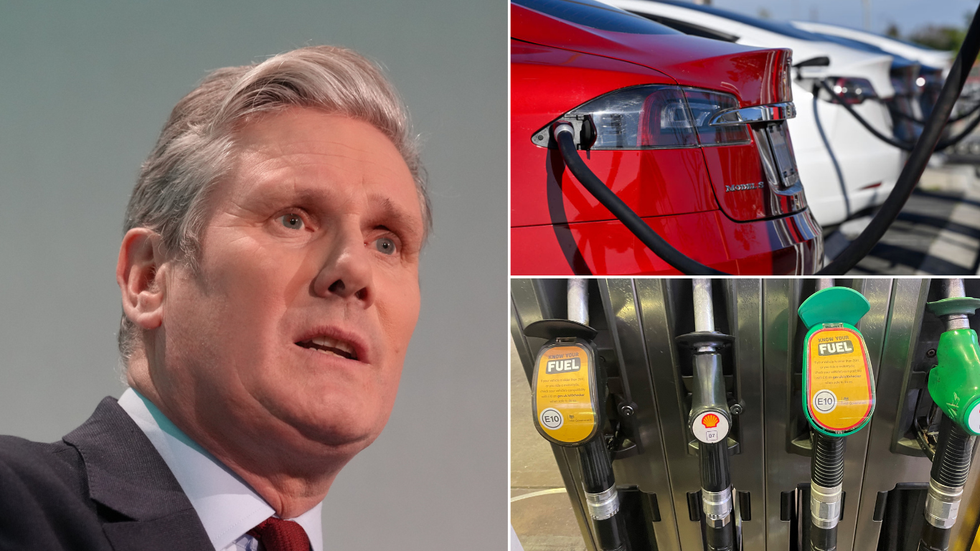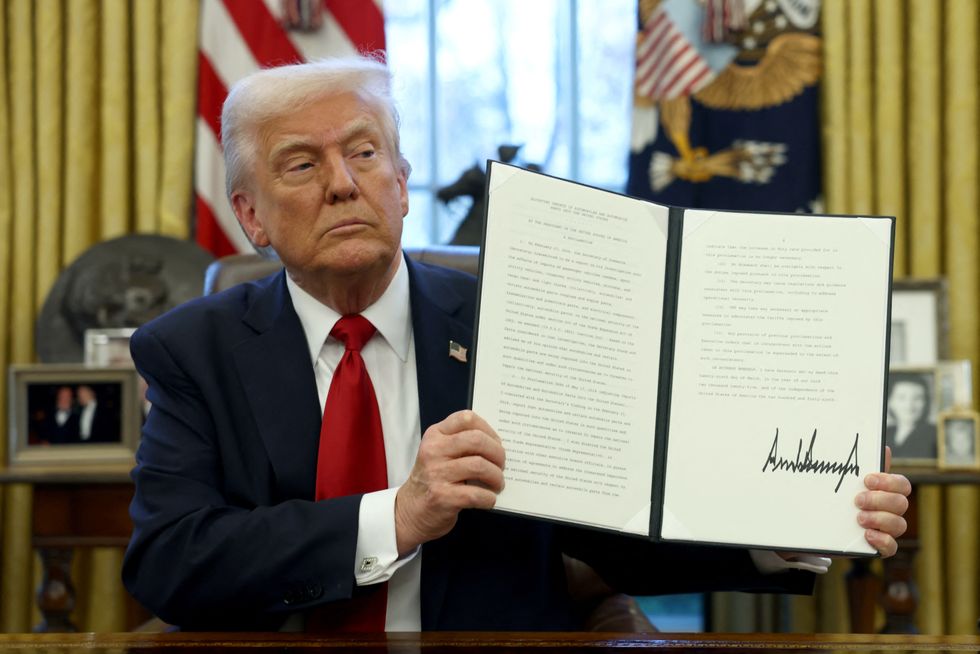WATCH: Danny Kelly hits out at the ZEV mandate - 'It’s bad for the consumer'
GB NEWS
The Zero Emission Vehicle mandate has been moved forward to 2030
Don't Miss
Most Read
Trending on GB News
Labour has confirmed plans to alter electric vehicle regulations in response to Donald Trump's tariffs on car exports, with Transport Secretary Heidi Alexander stating the Government needed to address the issue with "renewed urgency".
The changes, announced by Prime Minister Keir Starmer, aim to boost UK manufacturers while maintaining the 2030 ban on new petrol and diesel car sales as part of the Zero Emission Vehicle mandate.
Alexander said Trump's recently announced import taxes "are bad news for the global economy, because it's bad for global demand, it's bad for prices and it's bad for consumers".
The Government has now modified manufacturing targets for electric cars and vans to help companies during the transition period.
Do you have a story you'd like to share? Get in touch by emailingmotoring@gbnews.uk

The ZEV mandate has been brought forward by five years under Labour
PA/GETTY
The move comes as the FTSE 100 plunged to a one-year low amid deepening fears over the global impact of Trump's tariffs.
Under the measures, luxury supercar companies such as Aston Martin and McLaren will be allowed to continue producing petrol cars beyond 2030 due to their small manufacturing volumes. New hybrids and plug-in hybrid cars will remain on sale until 2035, while petrol and diesel vans will also be permitted until 2035.
The Transport Secretary said the Government had "struck the right balance" between protecting British businesses and cutting carbon emissions.
She defended the retention of the 2030 target for phasing out pure petrol and diesel cars, calling it "an opportunity for the car industry to remain at the cutting edge of the transition to EVs".
The Transport Secretary emphasised the importance of being "pragmatic" and "flexible" to help manufacturers make the transition while ensuring "cheaper EVs" become available to consumers.
Speaking on BBC Breakfast, Alexander insisted the changes to electric vehicle rules had been "very carefully calibrated" to minimise environmental impact, adding that the impact on carbon emissions was "negligible".
When challenged on BBC Radio 4's Today programme about whether the EV measures were planned before Trump's tariff announcement, Alexander explained that the consultation had begun on Christmas Eve and closed in mid-February.
However, she did acknowledge that Trump's tariffs meant the Government had to address its electric car plans with "renewed urgency".
The MP for Swindon South detailed how Starmer would be "honest about what is in the best interests of the British people" in any discussions with Trump. She added that the changes represented "significant" adjustments for the car industry rather than minor tweaks to existing policy.
However, Green Party MP Siân Berry criticised the Government's approach, saying: "The Government is wrong to apply the brakes on the sale of EV cars. This is just the latest in a series of boosts the Labour Government has given fossil fuel industries."
She argued the move "suggests Labour is weakening its climate commitments" and made "no economic sense" given green sectors are growing faster than the overall UK economy.
Meanwhile, Colin Walker from the Energy and Climate Intelligence Unit warned that weakening the mandate could reduce competition between manufacturers. "Prices for families seeking an EV might not fall as fast, and sales could slow," he said.
LATEST DEVELOPMENTS:
 Donald Trump confirmed that a 25 per cent tariff would apply to all foreign car importsREUTERS
Donald Trump confirmed that a 25 per cent tariff would apply to all foreign car importsREUTERSDespite the policy adjustments, the UK said it still maintains Europe's strongest electric vehicle market, with sales higher than any other European country, including Germany.
Figures from the Society of Motor Manufacturers and Traders found that uptake of pure battery electric new cars reached 382,000 units last year, slightly above Germany's 381,000. EVs held a 19.6 per cent share of the UK's new car market last year, up from 16.5 per cent in 2023.








